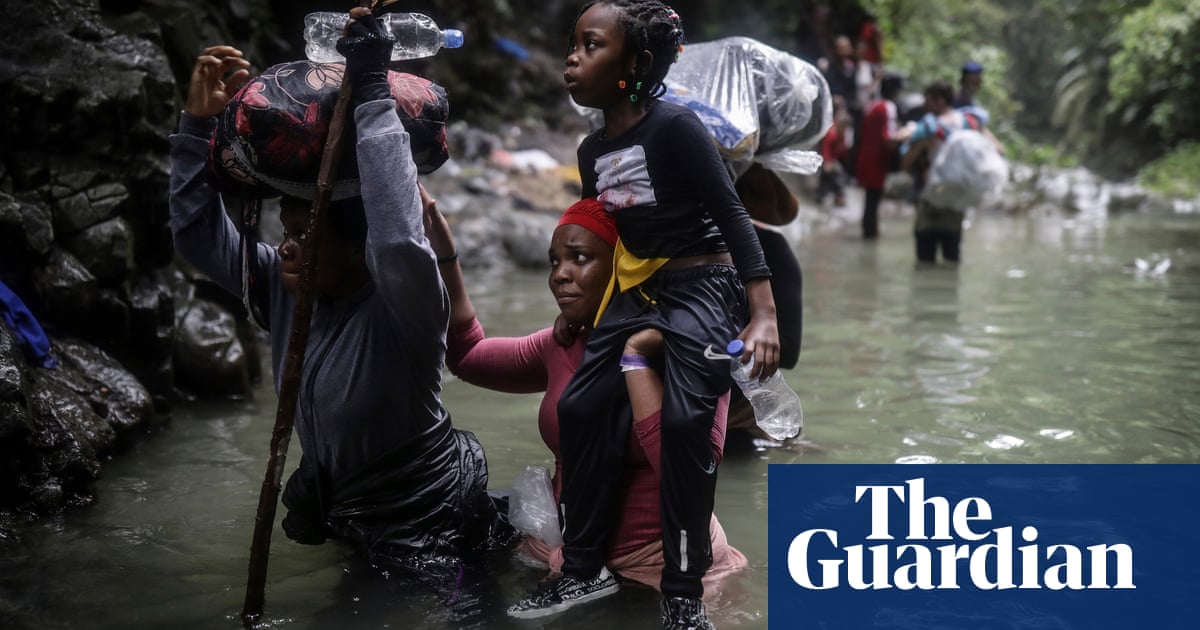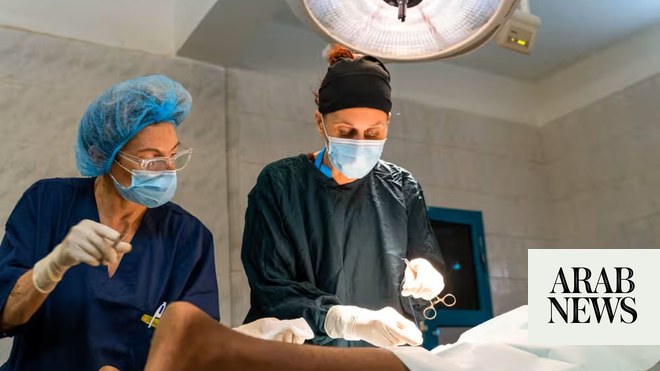
A sevenfold increase in sexual attacks against people crossing the Darién Gap is compounding the misery for people trekking one of the world’s most dangerous and underreported border crossings, said Médecins Sans Frontières (MSF).
Complete impunity for armed gangs in the lawless stretch of jungle that links South and Central America meant one person became a victim of sexual violence every three and a half hours in December, the overstretched medical organisation said.
“It’s an enormous, unexpected increase and is especially concerning as December is one of the months with the lowest flows of migrants,” said Carmenza Galvez, the coordinator of MSF’s Darién program. “Our team was already overrun with 30 to 35 cases a month, so we’re seriously worried about the sevenfold increase.”
MSF warned in November that rapists and kidnappers were increasingly targeting the record numbers of people traversing the dense jungle that connects Colombia and Panama.
More than half a million people – mostly from Latin America and the Caribbean, but also from China and Africa – made the treacherous, weeklong trek in 2023 to flee poverty and persecution. That figure is up from 8,500 in 2020.
The number of harrowing tales of sexual abuse told to MSF staff has dramatically increased in recent months, though, even as footfall declines.
“Cases keep rising even as the number of migrants falls,” said Natalia Romero, the head of communications at MSF Colombia.
The medical NGO recorded 214 cases of sexual violence in the Darién Gap in December 2023 – seven times the monthly average recorded between January and September last year.
Many cases go unreported as victims are in a hurry to continue the grueling journey towards the United States or because they are intimidated into silence by the perpetrators of the abuses, MSF said.
The spike in the number of victims means doctors cannot identify and treat all survivors with counselling or with medical treatment to prevent pregnancy, HIV and other sexually transmitted diseases.
MSF’s medical staff treated nearly 60,000 patients in 2023, including 3,000 needing mental health consultations.
Doctors most commonly treat severe cases of malnutrition, dehydration and aggressive fungal diseases contracted on the trek, but also the mental and physical damage caused by robberies, attacks and kidnappings by armed groups. Dozens of people die each year in the swampy jungles after being swept away in landslides or turbulent rivers.
“We are not able to reach all these people. We had to leave one of our posts, San Vicente, last year due to a lack of resources,” Galvez said.
The most egregious instances of sexual violence include the rape of men and women in front of their families as a form of punishment for not paying traffickers.
“I have worked in the Central African Republic where we have programmes dedicated exclusively to sexual violence. We are now exceeding the numbers recorded in places like that in the Darién. It’s deeply alarming not just for the victims but for the mental health of our team,” Galvez said.
There is an “alarming” increase in the frequency of instances of mass sexual violence, sometimes involving more than 100 victims at a time, MSF warned.
Masked men are increasingly detaining large groups of people after they enter the Panamanian jungle from Colombia before forcing them to remove their clothes to search their orifices for money or before committing a range of sexual attacks.
The exponential growth in the number of people trekking the Darién has made people trafficking big business for local politicians and drug-trafficking groups, who are exploiting the lack of state presence in the lawless jungle and cashing in on the crisis.
On the Colombian side of the border, none are profiting more than the Gulf Clan. Once rightwing paramilitaries and now Colombia’s largest drug cartel, the armed group have ordered for rapists to be killed to protect their lucrative people-trafficking business, meaning sexual abuse on the Colombian side of the rainforest is less common.
On the Panamanian side of the jungle, however, the combination of little state presence with no armed-group hegemony has left people at the mercy of small groups of armed bandits.
“On the Panamanian side, we see that state presence overly focuses on border control and does not prioritise the protection of migrants,” said Bram Ebus at the International Crisis Group. “It’s even worse because we know that Panamanian border guards have sexually abused migrant women.”
MSF and other NGOs on the ground have repeatedly called for regional governments to do more to protect the human rights of migrating people since numbers started growing during the pandemic, but they have seen no change on the ground, Galvez said.
“We understand that it is not up to us to tell the governments how to do their work and we know that it is a wild and vast place that is difficult to patrol, but we believe that more can be done. At the moment, the perpetrators are at ease committing these crimes as there are no consequences,” she said.











